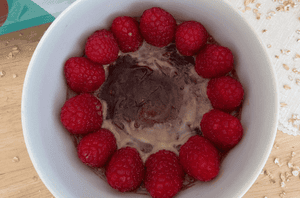
Can Caffeine Really Help With Weight Loss?
We are prepared to give up a lot to lose weight. Takeaways, Fast food, Even chocolate (well, maybe). But for many of us giving up coffee is a no-go. How else are we expected to function after 2 hours sleep because the kids go up 4 times in the night? Is there another way to stay awake through a 12-hour shift?!
Well, we’re not so sure about it all but hey we’ll give it a go to see a smaller waistline. Interested? Well, we look a little deeper into the pros and cons of caffeine:
What Are The Pros?
Studies suggest it can have a variety of health benefits, including reduced risk of breast, colorectal, colon, endometrial, and prostate cancers; cardiovascular disease and mortality; Parkinson’s disease; and type-2 diabetes (1).
It is the world’s most widely consumed stimulant and research suggests it can boost daily energy expenditure by up to 11%! (2).
Caffeine ingestion has been shown to suppress appetite, increase cognitive performance and mood as well as fight fatigue (3, 4).
What Are The Cons?
The average cup of black coffee contains 2 calories. hardly enough to have you piling on the pounds. The calories appear once you start adding the sweet stuff; flavoured syrups, milk and whipped cream.
A basic whole milk latte has 170 calories, double that for a large vanilla latte and don’t even get us started on a large Frappe which can contain up to 87g of sugar!
Some people may be sensitive to caffeine and experience its negative side effects more profoundly such as insomnia, nausea and nervousness/restlessness.
Take-Home Message and Recommendations
Caffeine consumption is a very effective way of making your weight loss journey easier! It can suppress appetite, boost daily energy expenditure, reduce fatigue as well as increase your cognitive performance during working hours!
To avoid the negative side effects of caffeine, space out your consumption within a day and do not consume any at all 6 hours before sleeping. Caffeine is generally safe to consume in dosages of up to 400mg per day for healthy individuals. To put this into context a cup of tea and coffee both contain approximately 40mg and 80mg of caffeine, respectively.
References
Grosso, G., Godos, J., Galvano, F., & Giovannucci, E. L. (2017). Coffee, caffeine, and health outcomes: an umbrella review. Annual review of nutrition, 37, 131-156.
Dulloo, A. G., Geissler, C. A., Horton, T., Collins, A., & Miller, D. S. (1989). Normal caffeine consumption: influence on thermogenesis and daily energy expenditure in lean and postobese human volunteers. The American journal of clinical nutrition, 49(1), 44-50. https://academic.oup.com/ajcn/article-abstract/49/1/44/4716276
Haskell, C. F., Kennedy, D. O., Wesnes, K. A., & Scholey, A. B. (2005). Cognitive and mood improvements of caffeine in habitual consumers and habitual non-consumers of caffeine. Psychopharmacology, 179(4), 813-825. https://link.springer.com/article/10.1007/s00213-004-2104-3
Carter, B. E., & Drewnowski, A. (2012). Beverages containing soluble fiber, caffeine, and green tea catechins suppress hunger and lead to less energy consumption at the next meal. Appetite, 59(3), 755-761. https://www.sciencedirect.com/science/article/pii/S0195666312002759

Related Articles








